Accounting and finance professionals who work as office managers juggle many responsibilities. They manage company accounting operations, coordinate employee performance, and oversee other company processes. To highlight your skills effectively on your resume, you need to develop an effective resume highlighting your abilities as an office manager. Understanding the nuances of creating an ideal resume can be challenging; not everyone has had experience or education in writing professional documents such as resumes and cover letters. This article will serve as a comprehensive guide on developing an effective resume for the role of office manager. We’ll cover everything from understanding why you need one to crucial tips for ensuring yours is successful. Read on for more information about resume writing regarding the office manager position and job search process.
Office Manager Resume Example

Download This Office Manager Resume as PDF
Office Coordinator Resume Example
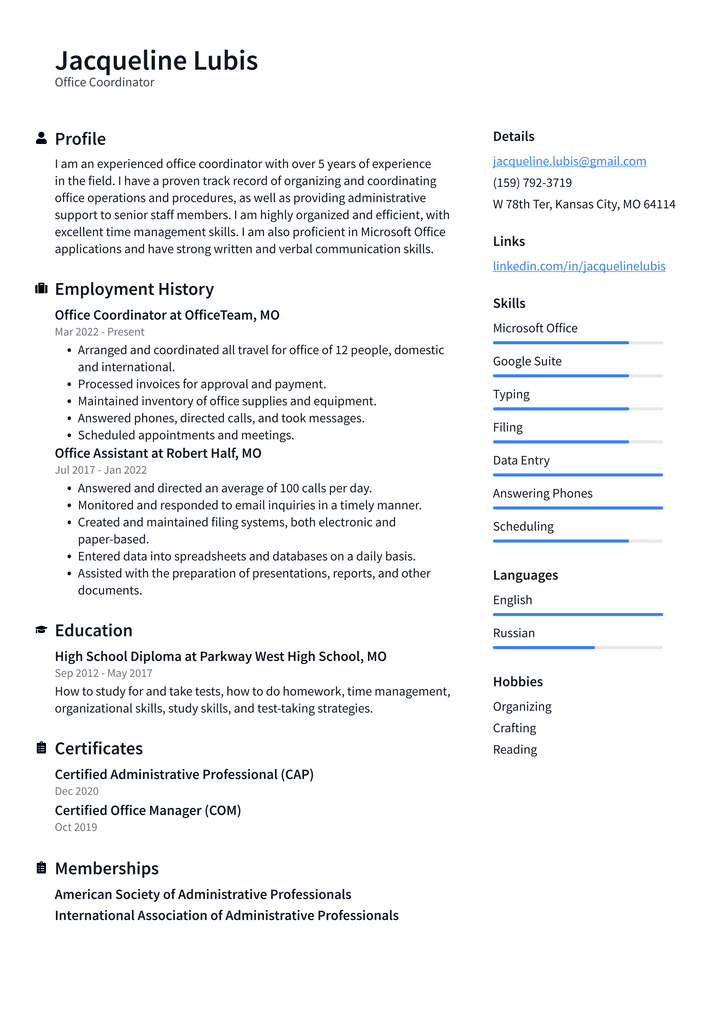
Download This Office Coordinator Resume as PDF
Office Administrative Manager Resume Example
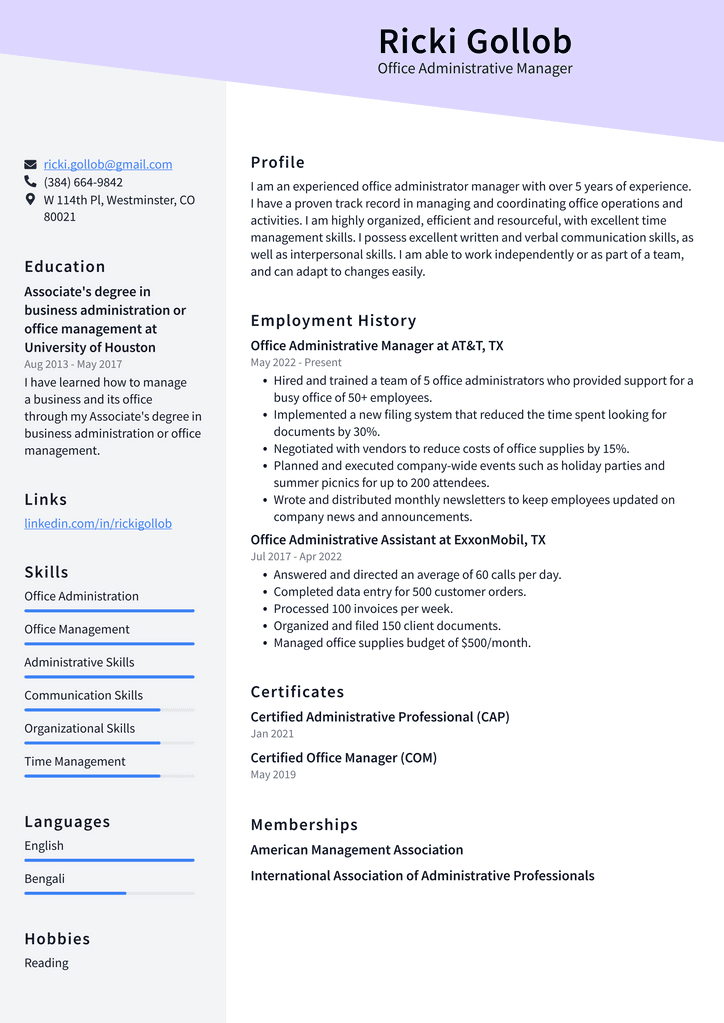
Download This Office Administrative Manager Resume as PDF
Office Clerk Resume Example
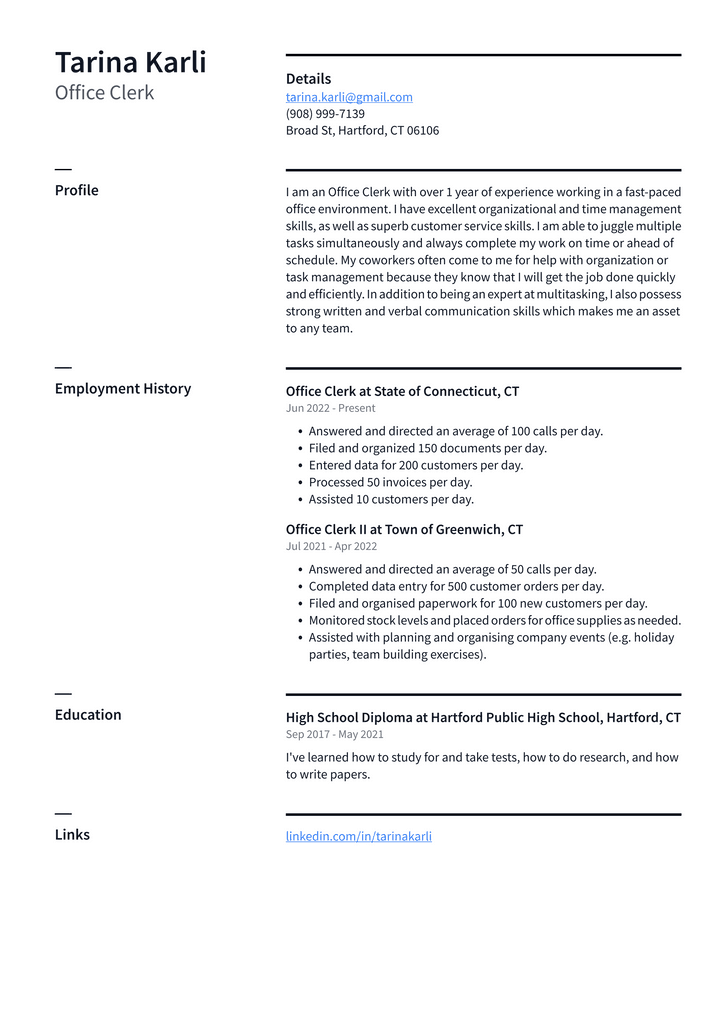
Download This Office Clerk Resume as PDF
Senior Office Manager Resume Example
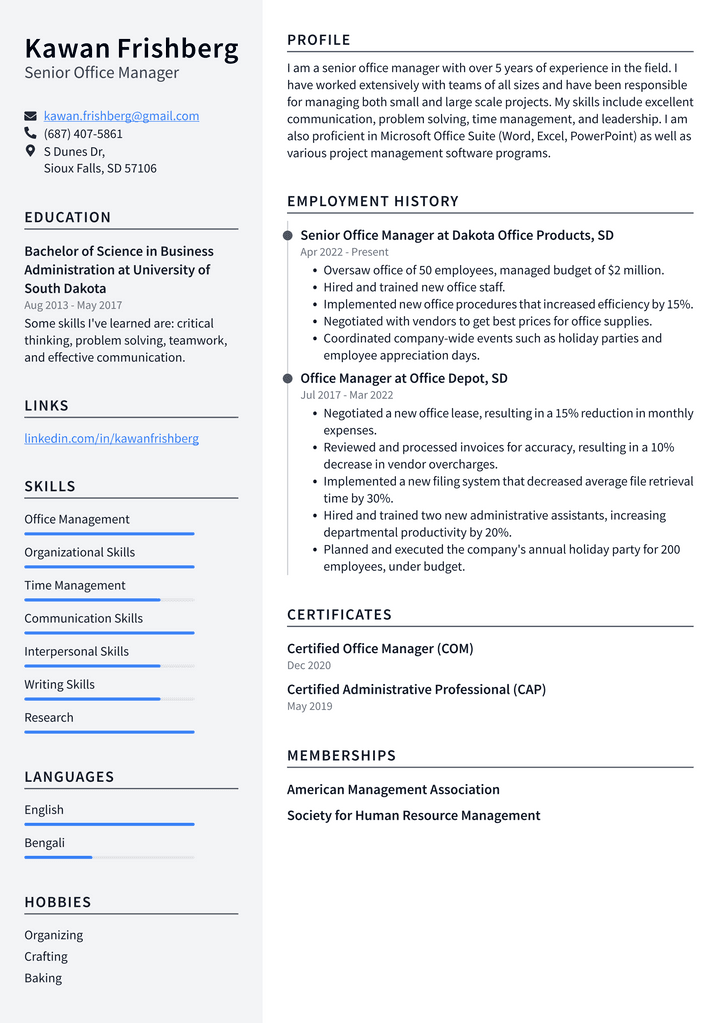
Download This Senior Office Manager Resume as PDF
Office Operations Manager Resume Example
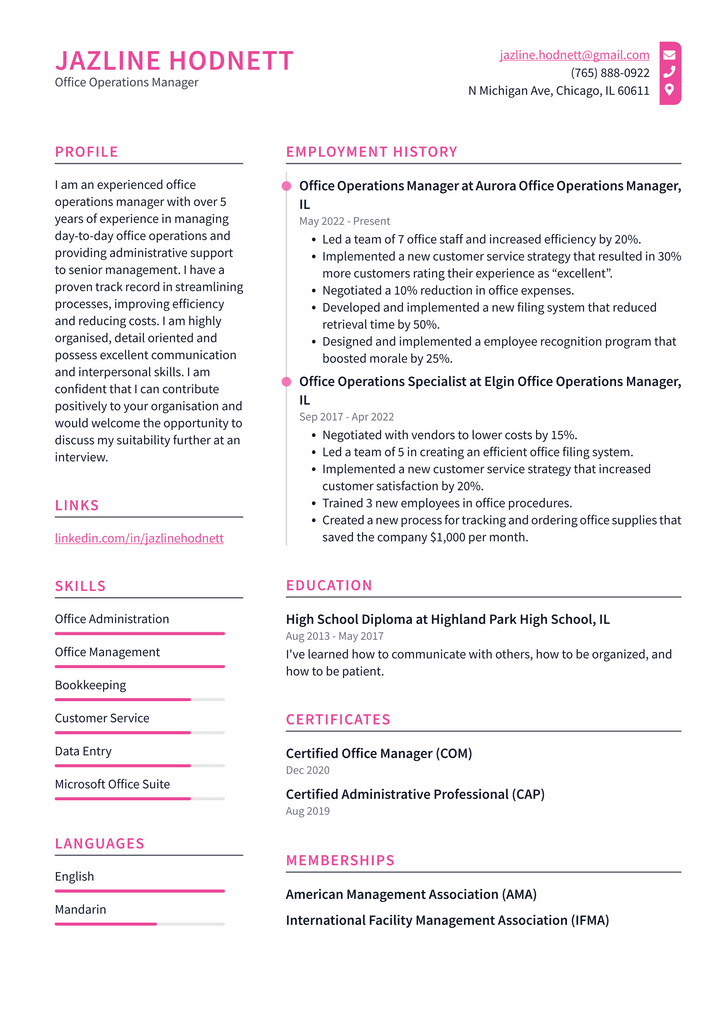
Download This Office Operations Manager Resume as PDF
Executive Office Manager Resume Example
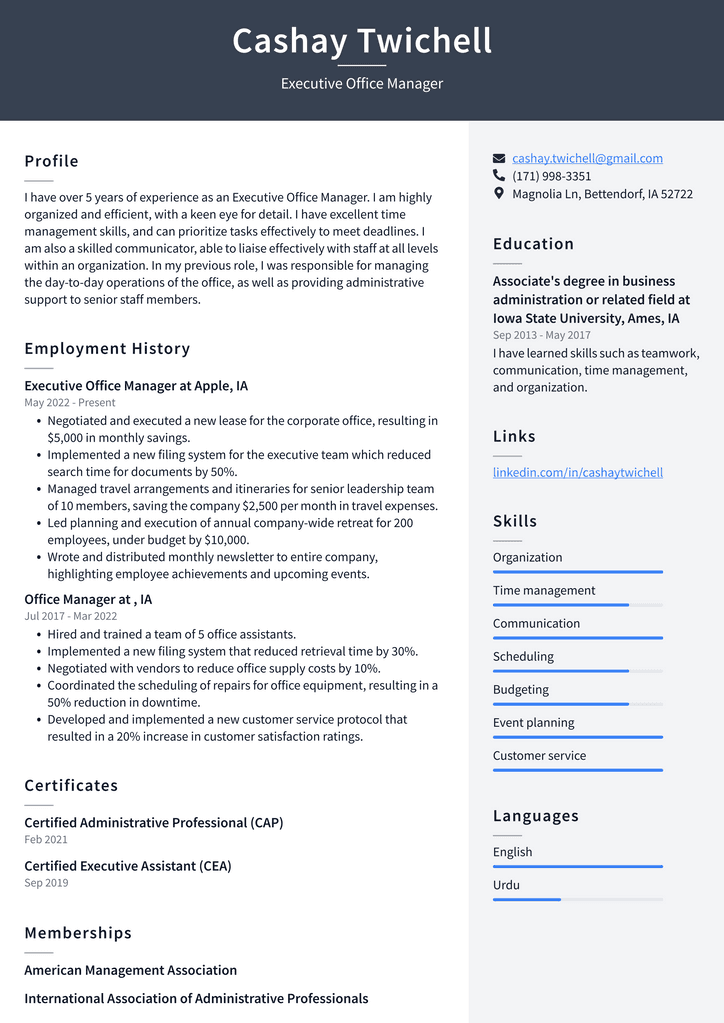
Download This Executive Office Manager Resume as PDF
Know Why You Need a Resume
Before you can get into the nitty-gritty of building an effective resume, you need to understand why you need one in the first place. First and foremost, resumes are vital documents in your job search process. Job seekers often wonder if they even need to include a resume if they’re applying for entry-level positions, but it’s necessary for all classes. Employers expect all job candidates to have resumes on file, so you need to have one ready in case it’s requested during your job search. Since resumes are a vital document in the hiring process, they can also help you gain an edge over the competition. Resumes allow you to highlight your professional experience and education in an easy-to-digest document that employers can quickly review. They also allow you to showcase your key strengths and skills and draw attention to any remarkable accomplishments you’re proud of.
Identify Your Key Skills
Before you start writing your resume, it’s a good idea to identify your critical skills as an office manager. To do this, you first need to understand the job description of an office manager. According to the BLS, the work of an office manager includes:
- Overseeing daily operations.
- Supervising personnel and clerical staff.
- Managing records and accounting tasks.
As an office manager, you’ll likely have many responsibilities, so you’ll need to pay extra attention to selecting your key strengths and skills. When selecting your essential skills, choosing only the most relevant skills for the office manager position you’re applying for is necessary.
Choose an Effective Format
Now that you know what skills to include on your resume, you must decide what format is best for your profession. You can use several different formats when creating your resume, but you should select the format that best highlights your strengths and skills. Keep in mind that not everyone’s resume format is the same. While there are no industry-specific standards, a few different formats are more common than others. The Chronological Resume Format – The chronological resume format is a tried and true format that highlights your work history as it occurred. This resume format is most effective for candidates with work experience in a single industry. The Functional Resume Format – A functional resume format is an excellent option for candidates who want to downplay their work history or focus on transferable skills. The Hybrid Resume Format – The hybrid resume format combines chronological and functional formats, which allows you to highlight your work experience and transferable skills. While this format is excellent for many different candidates, it’s beneficial for individuals who have a lengthy work history that can be challenging to condense into one or two pages.
Decide What to Include
Now that you’ve decided on the format for your resume, you can begin to determine what to include in your resume. Office managers have much work experience to showcase, so it’s essential to include the correct information to make your resume as effective as possible. Since your resume’s goal is to invite you to an interview, your resume should consist of the following: Contact information – Make sure your resume includes your name, phone number, email address, and complete address. Cover letter – Your resume should flow seamlessly into your cover letter. Resume summary – Include a short but powerful summary of your professional experience at the top of your resume. Education – This should go at the very bottom of your resume.
Tips for Writing a Professional Resume
When you’re ready to write your resume, you’ll want to ensure you’re doing everything in your power to make it as effective as possible. Here are a few tips for writing a professional resume: Keep your resume to one page – Most hiring managers will only spend about 20 seconds skimming your resume. If you exceed a single page, you risk losing the hiring manager’s attention. Make sure your resume flows – Make sure that your resume flows and that one section flows into the next. If a hiring manager has to stop mid-sentence and go back a paragraph, they’ll likely lose focus and move on to the next resume they see. Third, be clear and concise – Your resume should be clear and concise. If your hiring manager can’t understand what you’ve written or if you include unnecessary information, you’ve likely written an unprofessional resume. Use action verbs – Action verbs help add professionalism to your resume. For example, instead of writing, “I worked as an office manager for 12 years,” you could write, “Successfully managed and supervised 12-person office for 12 years.”
Conclusion
Resumes are essential documents to help you land an interview and a new job. If you’re ready to pursue a unique career opportunity, you’ll need to write a resume highlighting your skills and experience. For the office manager, you’ll want to focus on selecting abilities that are relevant to the position and the format that best highlights those skills. Additionally, you’ll want to ensure your resume is clear and concise and uses action verbs to help make it more professional. When you’re ready to write your resume, keep it brief and concise, use action verbs, and write it as if you were speaking to an employer directly.